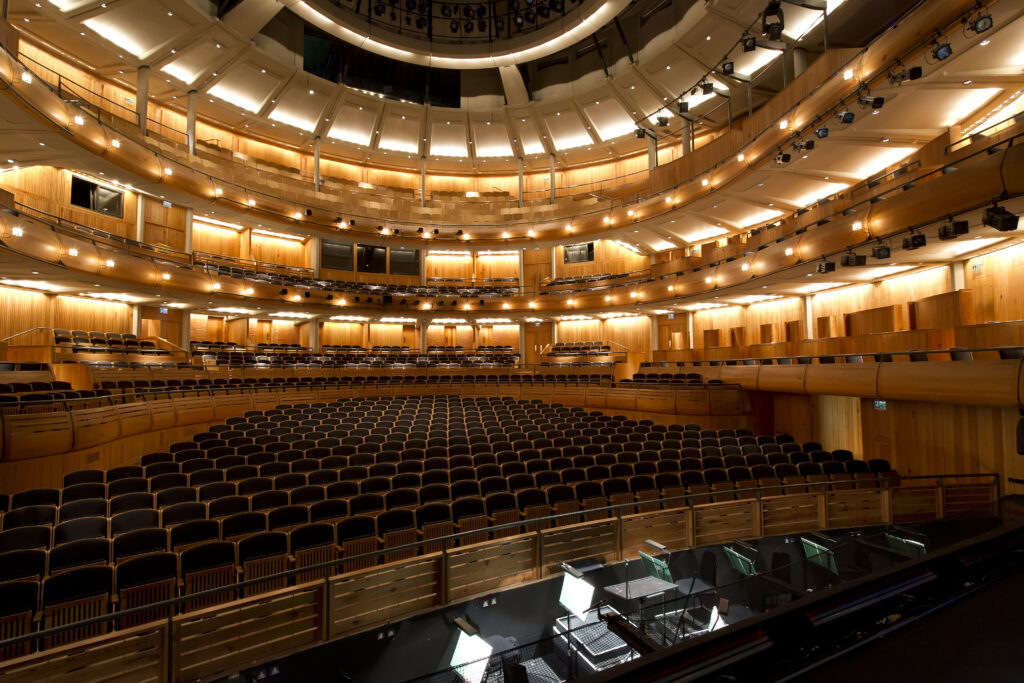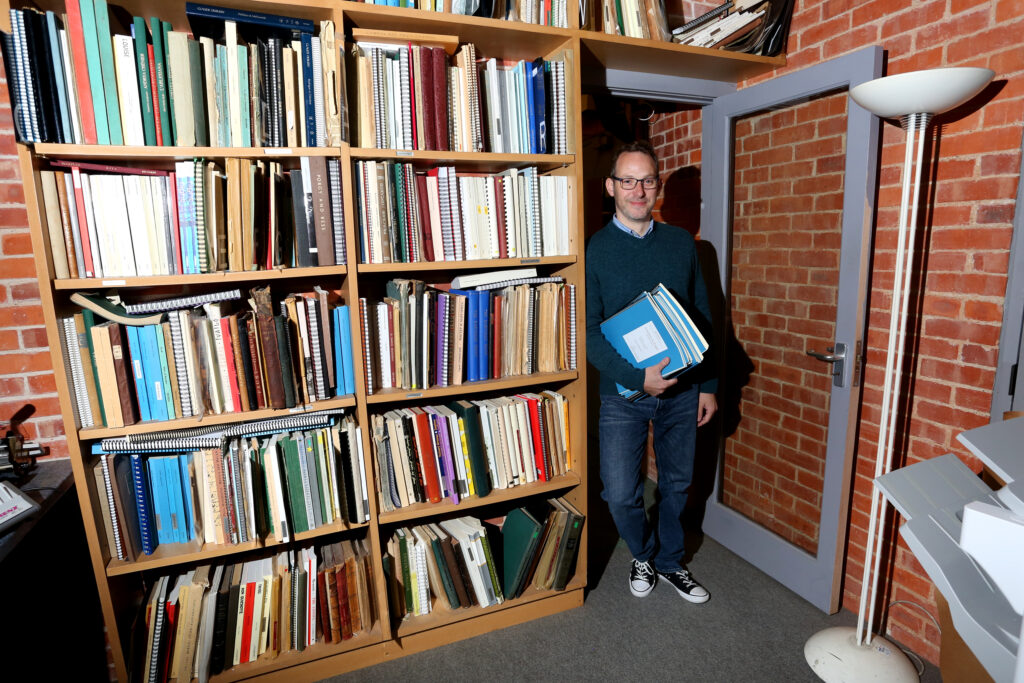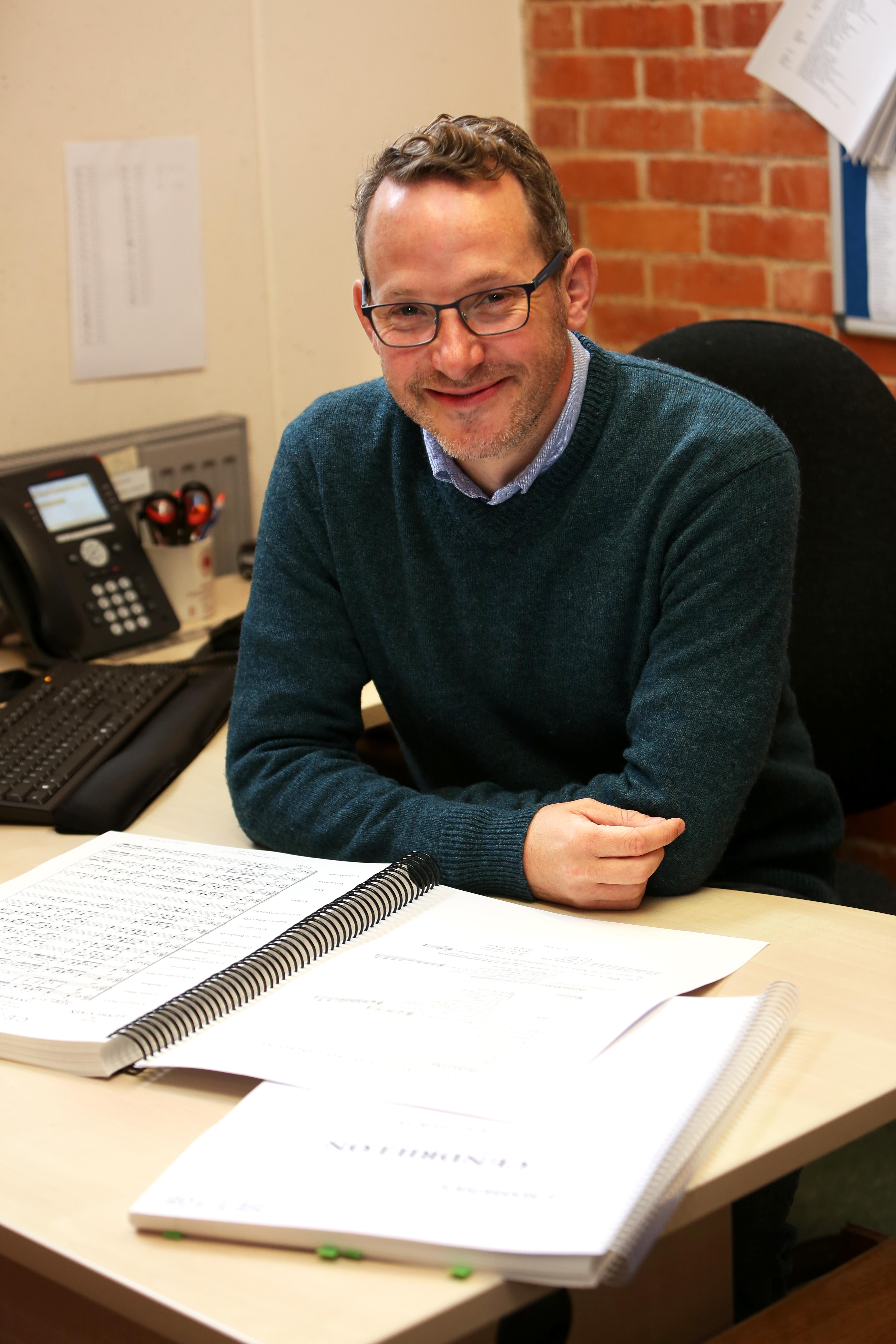Continuing our “Week in the life” series, Martyn Bennett, Head of Music Library and Resources at Glyndebourne, has spared us some time amidst the busy season to share some insights into his role at one of Britain’s most celebrated opera festivals. Martyn writes:
As Head of Music Resources and Library at Glyndebourne, I often find myself explaining that “resources” in my title covers far more than people might expect. In many opera houses, the responsibilities my team handles would be spread across multiple departments. But Glyndebourne’s roots as a smaller, tightly knit organisation have shaped a structure where anything music-related, aside from the musicians themselves, falls under our remit.
Our team is responsible for sourcing and preparing all sheet music, managing and operating surtitles, coordinating orchestra pit logistics, communicating with our resident orchestras, and maintaining every keyboard instrument on site. In short, we take care of everything that makes music, but isn’t a person.
The department comprises myself, two dedicated music librarians, and a pit team of up to five depending on the time of year. As we pass the halfway point of this year’s Festival, the bulk of our music preparation is behind us – but that doesn’t mean things slow down.
Unlike a standard orchestral performance library, working in opera involves a range of additional considerations. Beyond orchestral parts, we manage vocal scores, chorus scores (excerpts tailored for scenes involving chorus members), production scores (which include blank pages for staging notes opposite a piano reduction), and translations and language learning aids. Many of the people we deal with are seasonal, both musicians and technicians, so keeping track of who has what and pursuing returns is a big challenge.
Even after scores are prepared and distributed, the long rehearsal period Glyndebourne is known for often brings change. Studio sessions frequently generate musical cuts, key changes, or interpretative adjustments from conductors – all of which must be accurately logged, copied into parts, and redistributed. That includes principal singers, covers, music staff, the chorus, and production and technical teams, all of whom may not have been present for each update. Ensuring everyone stays aligned musically is a continuous process.

What We’re Managing This Week
This week:
- Falstaff is on stage for orchestra rehearsals
- Figaro has just opened
- Kat’a Kabanova is mid-rehearsals
- Parsifal and Il barbiere di Siviglia have just concluded their runs
Much of our time is spent in stage rehearsals, editing and rehearsing the operation of surtitles. We’re also wrapping up the closed productions: counting parts back in, scanning first desk string parts for archival purposes, and either shelving or returning materials to publishers. On top of that, we document any updates to production notes and ensure all associated materials-including surtitle scripts, cueing scores, and production scores-are properly archived and ready to be called on in the future.

Always Looking Ahead
While managing the present, we’re also deep into preparation for what’s next. We have a new commission premiering in the autumn season, already undergoing tweaks and rewrites. We’re putting systems in place now to ensure we can handle changes efficiently as they arise.
Looking further ahead, we’re preparing for next year’s Festival. That means ordering new vocal scores, identifying which orchestral sets we’ll be using, and estimating how much editing will be needed to bring everything to performance-ready quality.
In a role where the work is often invisible to audiences, it’s rewarding to contribute to performances from the ground up. Whether it’s making last-minute adjustments to a part in rehearsal or planning months ahead for a future production, the Music Resources team is constantly navigating the evolving needs of this dynamic art form.
All pictures © Glyndebourne Productions Ltd. Photos: Sam Stephenson
